- Home
- Tim Lebbon
Bar None
Bar None Read online
BAR NONE
Tim Lebbon
Copyright © 2009 by Tim Lebbon
This edition of Bar None © 2009 by Night Shade Books
Cover art by Eric Fortune
Jacket design by Darious Hinks
Interior layout and design by Ross E. Lockhart
All rights reserved
First Edition
ISBN10: 1-59780-097-X
ISBN13: 978-1-59780-097-6
Night Shade Books
Please visit us on the web at
http://www.nightshadebooks.com
For Mum
and all the great memories
With eternal thanks to Jason and Jeremy
Other Books by Tim Lebbon
Novels
The Map of Moments (with Christopher Golden)
Mind the Gap (with Christopher Golden)
Fallen
The Everlasting
Dawn
Berserk
Dusk
Desolation
Until She Sleeps
Face
The Nature of Balance
Hush (with Gavin Williams)
Mesmer
Novellas
The Reach of Children
A Whisper of Southern Lights
Pieces of Hate
Changing of Faces
Dead Man's Hand
Naming of Parts
Exorcising Angels (with Simon Clark)
White
Collections
After the War
Fears Unnamed
White, and Other Tales of Ruin
As the Sun Goes Down
Faith in the Flesh
One: Abbot
Six months after the end of the world, the air up here is amazingly clear. If I close my eyes I can smell spring on the breeze, and new rose blossoms, and the tang of the distant sea, and if I open them I believe I might be able to see forever. So I keep my eyes closed for a while, trying to isolate a different scent with every breath. Forever is no longer very far away.
Sometimes, when the weather is just right, I stare through rainbows and believe the world is still alive.
I smile at the meaty aroma of turned soil. Jessica is down there in our garden, preparing to plant the seedlings she found in the greenhouse. They were almost dead when we congregated here; drooping and pale, they resembled our own condition, but water brought us all around. I never believed there was any good left in those insipid green shoots, but Jessica is determined, and Cordell says to let her plant them if she wants to. His voice is dismissive, but I see the hope of greenness deep in his eyes.
I stopped to talk to her on my way up here, as I do most mornings. And as is the case most mornings, she looked refreshed from sleep and ready to tackle another day, while my eyes were puffy from crying and grief was a stone in my heart.
"Do you think they'll grow?" I asked.
Jessica shrugged, clapping her hands and sending dirt spraying.
"I dreamed of my wife last night," I said.
Jessica sighed. "I'm sorry."
"Don't be. It's still raw, even after six months. I think it always will be."
She looked at me evenly, eyes giving nothing away.
"You know I'm here to talk," I said, as I had a thousand times before. I was still desperate to discover hidden depths to Jessica's apparent lack of grief.
"I'm fine," she said, as she had responded as many times. "I had nothing to lose, so I can't see this as the end."
"I wish I were you," I said, and Jessica grinned. She startled and shocked me in equal measures.
I breathe in again, enjoying the smell. It reminds me of long childhood summers working on the gardens of the many new houses my parents seemed to have. Whichever place we moved to they wanted to change, and we always seemed to move in the summer, and they always preferred hacking down bushes and planting new shrubs and vegetables than stripping wallpaper and painting doorframes already hidden by decades of successive tastes. They would allocate me a particular corner as my own. I would clear it of weeds, turn the ground, pick out grass roots and the thicker cores of long-dead bushes, and then my own planting would begin. My own planting . . .
My memory leaches colour and fades to grey. I frown, unable to recall which had been my favourite plant. A flower? A tomato plant? A vegetable, and if so which one, and why?
I open my eyes, disturbed by the fragmenting of the memory. I need a drink.
Jessica believes that the air seems cleaner because we are eating better than we ever had before the end of the world. She says it boosts our senses. We're eating basic, that's for sure. I'm thinner than I've been since I was thirty, and I feel fitter than ever. Cordell is more pragmatic, attributing the clearer air to the sudden lack of pollutants being pumped into it, day and night, by the abusive humanity. Six hundred million cars fall silent, he says, and the world can breathe again.
I think it's a bit of both, and something more. Our diet is fine, and the air is purer than I have ever seen, no longer brown and hazy above the dead city to the south. No rumble of cars, no grumble of jets cruising the stratosphere, no violent expunging of fumes from skeletal factories. But I think more than anything, our changed perception is down to the drink.
I look out from the tower. A couple of hundred meters down the hillside sits the Manor, an old grey stone building that was once home to a famous architect. I've forgotten his name—I always do, no matter how often Jessica reminds me—but I know that three hundred years ago this tower was his folly. He built it to the love of his life, and doubtless brought her up here on days like today, impressing her with the view, the air, his richness of taste. I suspect he told her he loved her. "I love you," I say to the breeze, and for the first time in a couple of weeks I smell the dead city.
I frown. We all knew this time would come. Cordell maintains that most of the corpses will have rotted away by now, and that the stink of their continuing decay will be an undercurrent to the summer breeze, nothing more. But Cordell has lost no one, or so he keeps telling us. I was my own man, and I still am, and that's why I'm strong enough to survive this.
I think Cordell's a fool. If he really is his own man, why has he remained here with us for six months? And really, I can't believe he thinks survival is even an issue. It's obvious that this is the end.
I breathe in again and the scent has gone, but it was there for sure. "I love you," I say again, mimicking that long-dead architect's exhortations to his lady love. Now I smell turned earth, young blossom, water from the stream running around the base of the hill. No death; no corruption. I hope the tower likes the feel of my words across its stone, words it might not have heard for a long time. When we came to the Manor six months before, its owners had fled.
I wonder where they are now. Where they lie; where they rot.
"Time to go back down," I say. Nobody answers me. I've always been comfortable in my own company.
I circle down through the tower and emerge at its base, pausing to look at the graffiti that decorates the outside of its heavy oaken door. The words are mostly modern. They are the first lines of the first book written about the end of our world, and I promise myself that one day I will come here with a pen and paper, write them down, keep them safe. One day.
Mark S—I'm trying to get to Mother's in the grey. Hope to see you there? I wonder about Mark S, and what the grey is, and why whoever had left him this message found reason to end it with a question mark, as though unsure whether or not Mark S would even want to meet him or her at all. It has been carved into the door and then written over with indelible ink. A message designed to last for a long time. Sometimes I expect Mark S to emerge from the city and crawl up the hillside, but after six months I guess he's either made it to Mother's, or not.
I fu
cked Lucy on top of the tower. A stamp of ownership by the last habitants of the Manor? Or an expression of bravery and daring by some teenager who had managed to infiltrate the Manor's gardens, climb the tower, fuck the equally daring Lucy atop that old architect's folly? I do not know, and running my fingers over the fading ink tells me no more. Sometimes when I'm up there—I climb the tower a lot, and the others always leave me alone—I walk around the uppermost balcony and try to guess which view Lucy had been taking in, whilst taking in the writer. I cannot even consider that perhaps she was looking inward when the event took place. There is so much to see, and surely after climbing over a hundred steps she would want to appreciate the panorama?
David, Warren, Diane—there's moor than you can ever dream. I'm gong to find it. Trust in me and I'll be bak. This was almost fresh when I first arrived at the Manor. If I pressed my nose to the oak, I could still smell the chemicals from the ink. David, Warren and Diane have not joined the rest of us here, but sometimes I wonder whether one of the others—Cordell, perhaps, or the Irishman who refuses to tell us his name—may be the writer. I have yet to work up the courage to ask any of them. I'm not sure what dissuades me, but I think it's the hope that there's still something out there other than us. The hope that this writer, unable to spell but determined to find more than the others could ever dream about, is still searching the dead landscape. Maybe one day they'll find a truth. Maybe one day they'll return.
There's a wide swathe of daffodils around the base of the tower. They are mixed into yellows and creams, and the bulb species must have been varied to give a solid eight weeks of blooms. Old flowers are brown and fading, whilst new ones shine through. I kneel and cup one bloom, staring at its random perfection, and I try to remember my wife's face. I close my eyes, but there is a shadow blocking her out. All I can recall is the knowledge of her tears and pain as the plagues took her away. "Ashley?" I ask. Still only her tears, and my memory's response is her angered cry as she felt herself slipping away.
I definitely need a drink. There's not much left, but that has not prevented us all from drinking every day. Temperance has died with the rest of the world.
I stand, stretch, and realise that something is very, very different.
Jessica is still digging in the garden, sheltered from the heat in the Manor's shadow, comfortable in her own strange acceptance of everything that has happened. Cordell is somewhere out of sight, perhaps talking with Jacqueline in the massive dining room. The Irishman is sitting on the tree swing hanging from the big oak tree beside the Manor's driveway. He's smoking. He is always smoking. He never smokes in the house, because he says he respects our health. Cordell always laughs at that, but each time the Irishman says it, I get a lump in my throat.
I look beyond the Manor, along the driveway, past the boundary hedging, down the wooded hillside toward the river and the dead city beyond. Though I'm no longer up in the tower I can still just see over the Manor's rooftop, the river a silver snake in the distance, the city a smudge of stillness beyond. We've seen many animals in the six months we've been here, some of which we can't quite explain, but nothing has ever moved in the city. Above it, yes—those flying things. But its streets are always still and silent.
But now something is different, though I can't yet see what. I close my eyes and breathe in, thinking that perhaps I have smelled a change on the breeze. There's another whiff of rot and my eyes open. Yes, but I've smelled that before, I think. We all have. We know it's there, we know the city is filled with dead people. However much we try to forget that, we're not stupid. We've always known that the winds would turn to come from the south when spring heats into summer.
That's not the change. Disturbing though it is, the smell is nothing new. Even in the winter just passed, when heavy snow would have marooned us here had we not already been committed to staying, we sometimes awoke to the smell of decay.
I hold my breath and listen. Jessica is singing, her voice a bare whisper, words lost to distance. The tree swing is probably squeaking beneath the weight of the Irishman. Birds call from the trees, a breeze hushes the leaves, crickets scratch at the air from the grasses growing long across the hillside . . . and there is something else.
I concentrate, trying to separate the myriad sounds I know from the single sound I do not. Its strangeness confuses me for a while, as though the length of time since I have heard a noise like this has wiped it from memory and planted it deep in my drunken dreams.
I turn and start running back up the tower's curving staircase.
By the time I reach the top balcony I am out of breath. My heart is hammering at my chest, and I'm afraid that I will have a heart attack and tumble back down. I try to think of Ashley, but once again it is only her pain and tears I can recall, the rest of her—our past, our life, our love together—overshadowed by the end of the world. I know that she was beautiful, but it is a certainty rather than a memory. I hope she would smile to calm me down, and that hope calms me, and I look south toward the city.
I cannot guess how I heard the motorbike from so far away. Even now, three or four minutes after first detecting the growl of its motor, it is only just visible on the long road that leads from the river bridge junction deep into the rotten heart of that place. I shield my eyes from the sun and watch the black speck weaving between abandoned cars, buses and vans. I can hear the rise and fall of its motor as it speeds and slows, passing from view behind an overturned army truck, appearing again, and now I can make out that the rider is wearing no helmet.
Why bother? Cordell would say.
Because there are so few of us left, the Irishman would reply.
The bike clears the last of the cars and passes the few buildings on the other side of the river; the Royal Oak, the expensive apartments, the boys' school that has been closed for a decade. The bridge is clear. For some reason no vehicles were left there. The bike powers our way, and as it speeds up its motor seems to echo from the whole hillside.
Still a mile away, I think, road to climb, the lane to navigate, then the gravel driveway. But it feels as though it's here already.
"Jess!" I shout. Jessica looks up from her planting. "Someone's coming out of the city!" I see her stand, arms limp by her sides, and then she drops her trowel and hurries into the Manor's kitchen.
The Irishman jumps from the tree swing and looks my way. "Who?" he shouts, cupping his hands to his mouth. For now his voice drowns the sound of the motorbike, and for that I am grateful. Within minutes that will no longer be the case.
"Guy on a bike!" I shout. "I'm coming down." He nods, waves and runs for the Manor.
I start down the staircase for the second time in ten minutes. I'm painfully alone. It's a feeling that has hit me often since the plagues came and went, but lately it has happened less and less. I'm not sure whether that's because I'm adapting to being alone, or because we are forming some sort of tentative family here. Distant, cautious, often unwilling, but a family nonetheless. A family of survivors.
They'll all be in the dining room by now. Cordell will be handing out the guns while the Irishman tries to calm their fears, telling them that this could be a survivor from another part of the country. They'll be scared, but excited as well. We haven't seen or heard from anyone else for over four months. Jacqueline will whisper something that no one will hear, and Jessica will be strong and impassive, shaking her head at the Irishman's passionate pleas, offering a dismissive smile to Cordell as he predicts trouble. She seems to be stronger than all of us, but once I thought I heard her crying herself to sleep.
I need a drink now.
Perhaps that's why the motorcycle man is coming.
Maybe he knows.
As I run, I pull out my flask. The beer is warm and flat, but I pause and gulp it down. I'm nervous. I need some taste of the comfort in times gone by. For a minute or two, I need to go away.
I remember drinking Greene King Abbot Ale on the banks of the Usk, relishing its hoppy crispness, its sweet caramel a
roma and nutty aftertaste, admiring the slight head that stuck to the glass, and I was halfway through my third pint when I saw her. At first I had to shield my eyes from the sun to make out whether or not she was real. She had crossed the river bridge, a mirage emerging from the blazing heat, and now the sun battered down behind her and threw her melting shadow my way. Where it touched, my skin grew warmer. The sun was so powerful that it shone through as well as around her, curling across curves, piercing hair and eyes and meeting again before her, holding her, almost wiping her from existence. I squinted, trying to form a shadow for my eyes. She ran her hands through her hair and made a sunburst halo. Then she sighed.
I had still not seen her properly, but I fell in love with that sigh. Perhaps it was the beer in me—three cool pints on such a hot day, and I had not eaten since a token slice of toast for breakfast. The Abbot lay light on my stomach and heavy in my veins, giving the sun more power, sensitising my eyes to the brightness and heat, and this miracle vision before me.
I took another swig of beer, draining my glass. Smacked my lips. God, I loved beer. There was something so intensely powerful about that taste, and yet so primal, as though with each fresh mouthful I was blinking back to the early history of myself, a potential that could not even shift a speck of dust in those ancient African plains where humanity was born. Sometimes I had moments when I thought the truth of things was so very close to my lips, just a whisper away. The feeling would last forever—a second, maybe two—and then I would speak, and I always said the wrong thing. I used to wonder whether I was the only person this happened to, but sitting on that riverbank with an empty glass warming in my hand, I shifted to the side just enough to see her face. And I knew then that it was not only me. We all have the potential of truth and revelation within us. I saw the way her whole body paused, as though the world held its breath on her account, and then her hand went to her cheek, fingertips tracing the smooth skin.

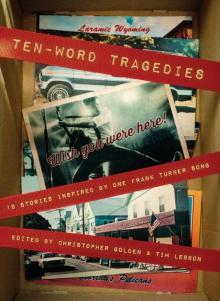 Ten-Word Tragedies
Ten-Word Tragedies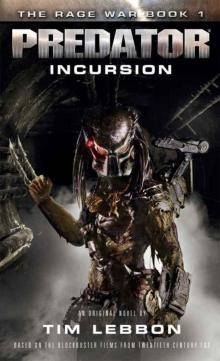 Predator: Incursion
Predator: Incursion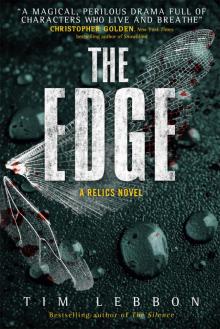 Relics--The Edge
Relics--The Edge Firefly
Firefly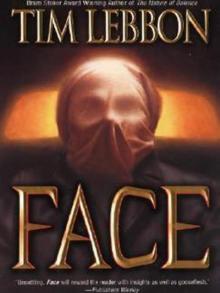 Face
Face Generations
Generations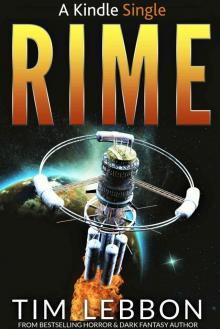 RIME (Kindle Single)
RIME (Kindle Single) Fallen
Fallen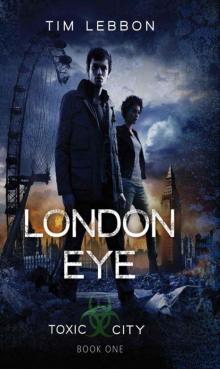 London Eye tc-1
London Eye tc-1 Kong: Skull Island
Kong: Skull Island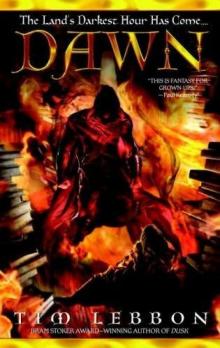 Dawn n-2
Dawn n-2 Into the Void: Star Wars (Dawn of the Jedi)
Into the Void: Star Wars (Dawn of the Jedi)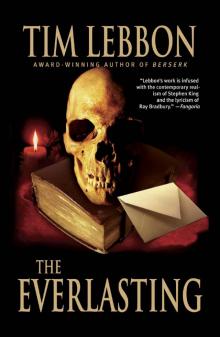 The Everlasting
The Everlasting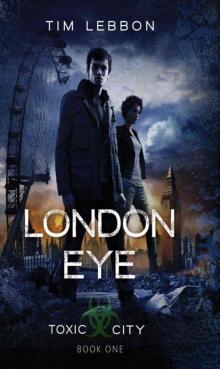 London Eye: 1 (Toxic City)
London Eye: 1 (Toxic City)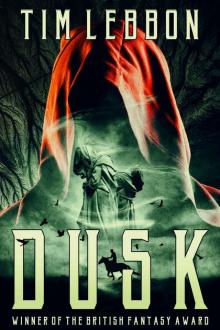 Dusk: a dark fantasy novel (A Noreela novel)
Dusk: a dark fantasy novel (A Noreela novel)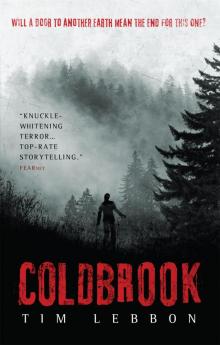 Coldbrook
Coldbrook Alien
Alien Dusk
Dusk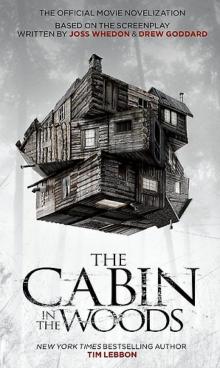 The Cabin in the Woods
The Cabin in the Woods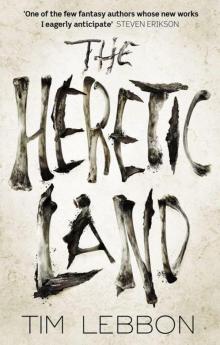 The Heretic Land
The Heretic Land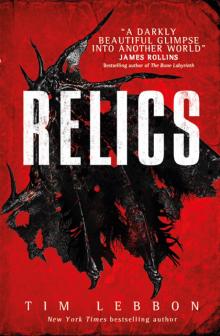 Relics
Relics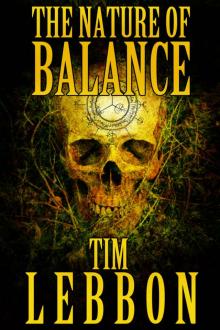 The Nature of Balance
The Nature of Balance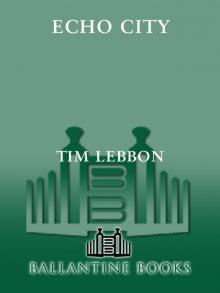 Echo City
Echo City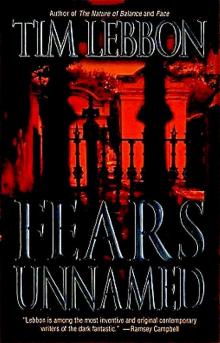 Tim Lebbon - Fears Unnamed
Tim Lebbon - Fears Unnamed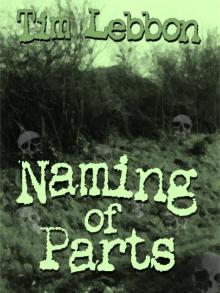 Naming of Parts
Naming of Parts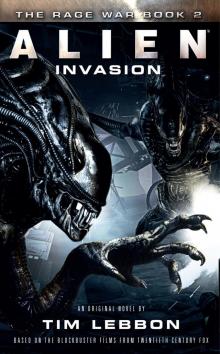 Alien--Invasion
Alien--Invasion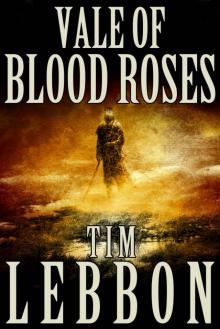 Vale of Blood Roses
Vale of Blood Roses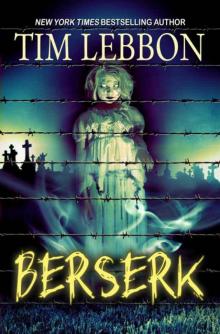 Berserk
Berserk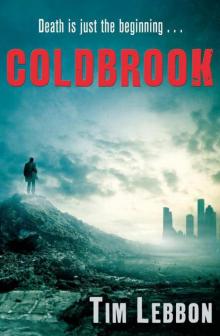 Coldbrook (Hammer)
Coldbrook (Hammer)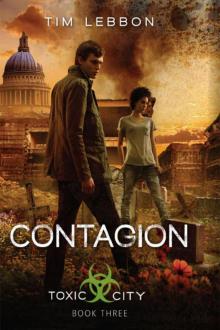 Contagion tc-3
Contagion tc-3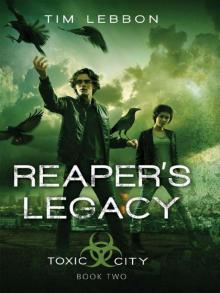 Reaper's Legacy: Book Two (Toxic City)
Reaper's Legacy: Book Two (Toxic City)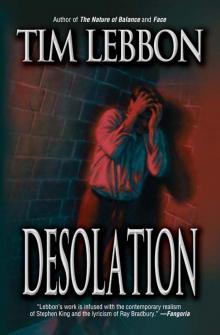 Desolation
Desolation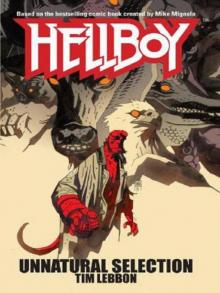 Unnatural Selection
Unnatural Selection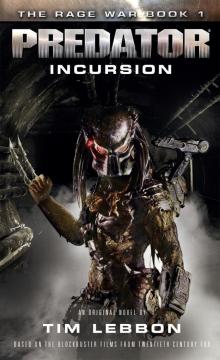 Predator - Incursion
Predator - Incursion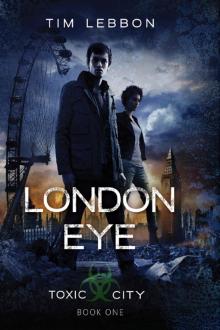 London Eye
London Eye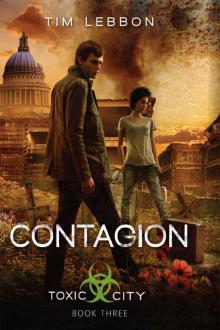 Contagion (Toxic City Book Three)
Contagion (Toxic City Book Three) The Silence
The Silence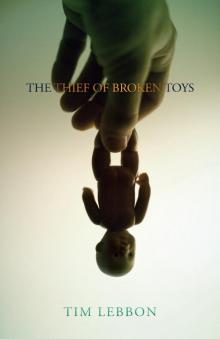 The Thief of Broken Toys
The Thief of Broken Toys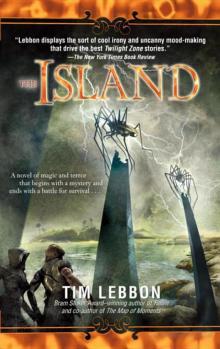 Tales of Noreela 04: The Island
Tales of Noreela 04: The Island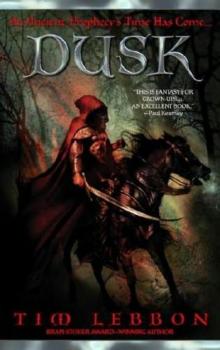 Dusk n-1
Dusk n-1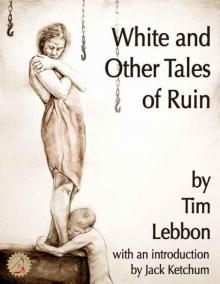 White and Other Tales of Ruin
White and Other Tales of Ruin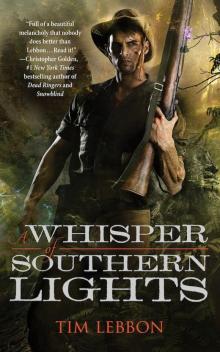 A Whisper of Southern Lights
A Whisper of Southern Lights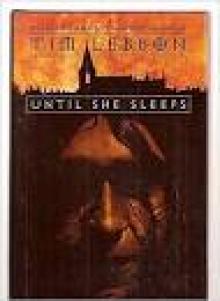 Until She Sleeps
Until She Sleeps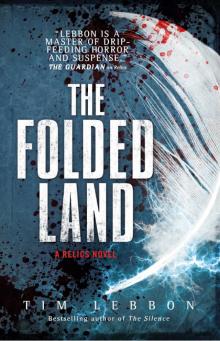 Relics--The Folded Land
Relics--The Folded Land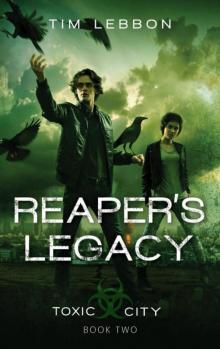 Reaper's Legacy tc-2
Reaper's Legacy tc-2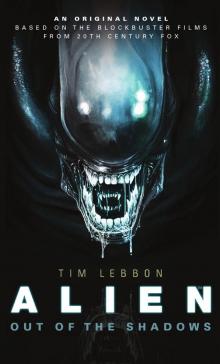 Alien: Out of the Shadows
Alien: Out of the Shadows Pieces of Hate
Pieces of Hate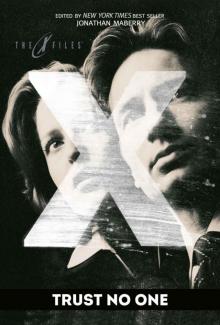 X-Files: Trust No One
X-Files: Trust No One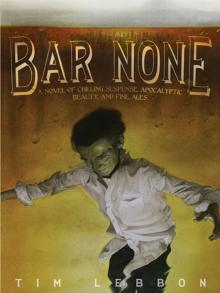 Bar None
Bar None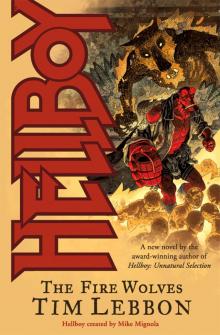 The Fire Wolves
The Fire Wolves